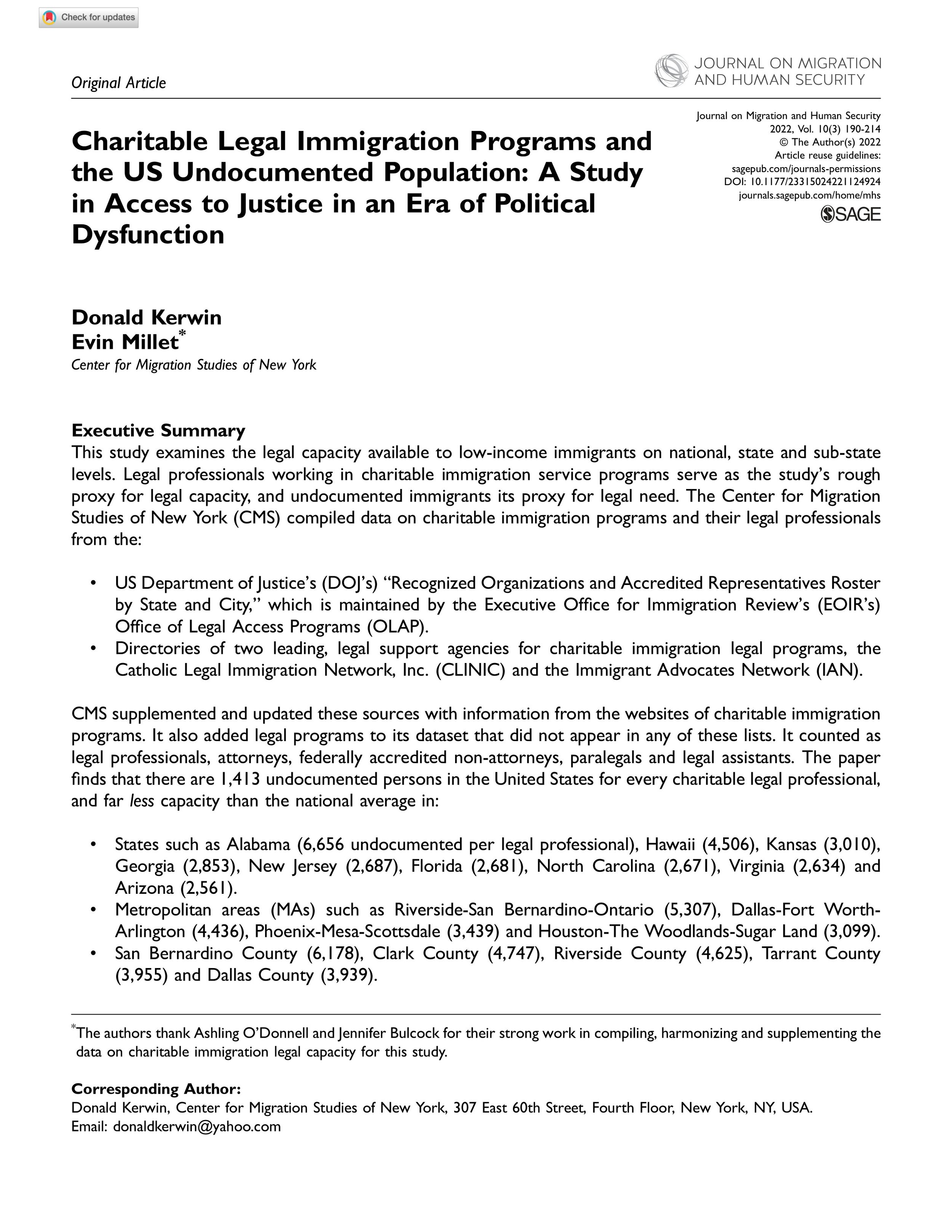By The American Immigration Council
The Torrance County Detention Facility (Torrance) is one of approximately 200 facilities across the United States where Immigration and Customs Enforcement (ICE) detains immigrants with pending removal proceedings. Located in the rural New Mexico desert, this detention facility holds a notorious reputation for its inhumane living conditions and for the speed at which individuals detained there go through their removal proceedings, often without adequate legal counsel. Despite these noted abuses, in September 2021, ICE placed over 100 Haitian migrants into Torrance while they awaited removal proceedings. For months thereafter, the media continued to report on a variety of obstacles Haitians endured in detention including inadequate access to legal counsel.
Due to the increase in complaints from individuals being held at Torrance, the American Immigration Council (The Council) sought to ascertain whether particular barriers to due process exist for Haitian nationals, as well as to investigate the overall treatment of Haitian nationals at Torrance. The request sought data related to individuals detained at Torrance from January 1, 2021, including arrest/apprehension information, immigration status, biographic information, detention history, and release information. ICE responded by providing data between January 1, 2021 and November 17, 2022, and this is what we found when we analyzed it:
ICE's Use of Racial Classifications Are Unreliable, Labeling Most Detained Individuals “White:” Individuals in detention at Torrance represented 54 different countries spanning five different continents. However, 86 percent of individuals detained at Torrance were categorized as racially “white.” The data suggests that ICE failed to systematically document the race of detained individuals.
Africans Had the Highest Lengths of Detention at Torrance: Because ICE’s race categorizations proved unreliable, researchers grouped detained individuals by continent to measure the impact geographic location has on detention lengths. The data showed that African migrants had the highest lengths of detention.
ICE Officers Continued to Populate Torrance Despite Multiple Warnings: During the reviewed time period, ICE had substantial warning signs that Torrance was not equipped to house detained migrants through failed inspections, COVID surges, staffing shortages, and even
government oversight agency reports recommending shutting the facility down. Despite these warning signs, the data showed that ICE continued to detain migrants at Torrance, putting them at risk.
Oversight Efforts Seemingly Reduced the Detained Population at Torrance—But Only Temporarily: The data shows that between August and November 2022, a period that included the suicide of Kesley Vial at Torrance and a government report calling for the closing of Torrance, the population of Torrance consistently decreased. However, in December 2022, ICE began repopulating the facility.
Washington, DC: The American Immigration Council, 2024. Published: October 24, 2024







